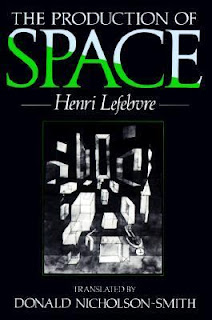An extraordinary work of interdisciplinary speculation on the creation and meaning of social environments. Combining philosophy, aesthetic theory, social criticism, and the social sciences, Lefebvre reflects on vast expanses. Lefebvre's use of "space" reflects in part the concerns of ecologists, urban planners, and anthropologists. If what Lefebvre means by "space" is ultimately nebulous, he is convincing about the need for an idea both more and less than "world View," "form of life," or "culture." Familiar topics of cultural history Greece, Rome, the Middle Ages, the rise of capitalism, urbanization and modernism (Picasso and Bauhaus architecture) are discussed with fresh insight. Signs and semiotics appear often. Marx (with an emphasis on the non-economic, Hegelian side) is the greatest influence, but there is no hint of doctrinaire Marxism. Other frequently discussed figures include Barthes, Hegel, Heidegger, Kant, Kristeva, and Nietzsche. The afterword by geographer David Harvey (The Limit to Capital, CH, Mar'83) is a good, brief, intellectual biography of Lefebvre, an important French intellectual for over 60 years. The book reads very naturally; one is unaware of the translator except for judicious notes. D. Christie; University of New Hampshire
| Descriptive content provided by Syndetics™, a Bowker service. |

No comments:
Post a Comment